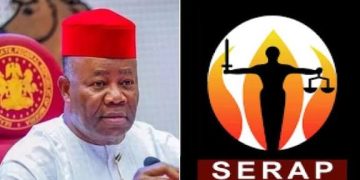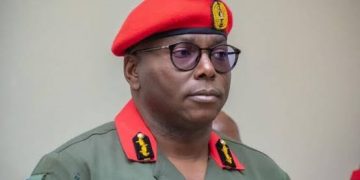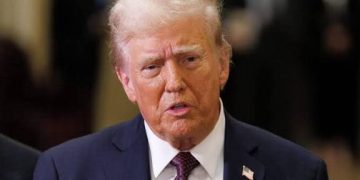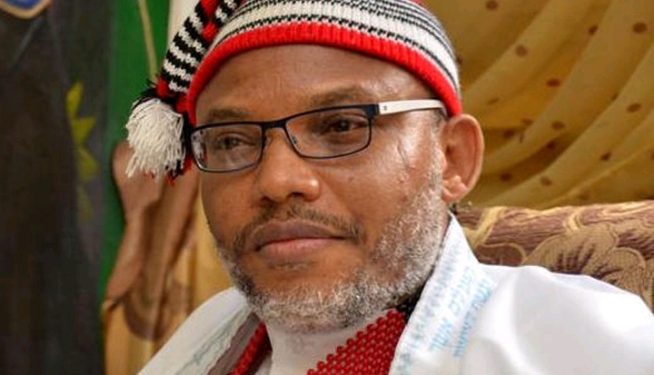In every democracy, the right to peaceful protest is a fundamental pillar of civic freedom and an instrument through which citizens can demand accountability, justice, and reform. In Nigeria, however, exercising this constitutional right often comes with intimidation, suppression, and, at times, violence. As civil society voices grow louder in the campaign for the release of Mazi Nnamdi Kanu, the detained leader of the Indigenous People of Biafra (IPOB), a new wave of debate has emerged about the limits and protection of protest rights in Nigeria.
Human rights activists, including prominent politician and pro-democracy campaigner Omoyele Sowore, have announced plans for a peaceful protest slated for October 20, calling for Kanu’s immediate release and fair treatment. Sowore has consistently emphasized that the protest will be peaceful, transparent, and grounded in lawful civic expression. Yet, despite assurances of non-violence, attempts to discredit and suppress the movement have surfaced notably from some Igbo groups and political elites who appear divided on the issue.
One such group, Njiko Amaka, led by Chief Emeka Ejidike and Chief Okey Anosike, issued a statement expressing concerns that the protest could “disrupt steady judicial progress” in Kanu’s case. Similarly, a coalition of Igbo professionals and businessmen in the United States alleged that the planned protest is politically motivated describing it as an attempt by 2023 presidential candidates Omoyele Sowore and Atiku Abubakar to “derail the ongoing trial” of the IPOB leader.
Observers argue, however, that such accusations miss the essence of civic protest in a democratic system. The right to peaceful assembly is enshrined not only in Nigeria’s 1999 Constitution (Section 40) but also in Article 11 of the African Charter on Human and Peoples’ Rights, to which Nigeria is a signatory. To undermine or criminalize peaceful protest is to erode the democratic values that give legitimacy to governance itself.
Many Nigerians see the reluctance of Southeast politicians to openly advocate for Kanu’s release as a betrayal of principle. Rather than defending constitutional freedoms, some have resorted to political expediency or silence allowing opportunists to dominate the conversation. If Southeast leaders had taken a stand earlier, there would be no need for Sowore or anyone else to fill that moral vacuum.”
Meanwhile, Amnesty International and other global human rights organizations have repeatedly condemned the Nigerian authorities for their handling of protests. Reports have documented patterns of arbitrary detention, use of tear gas, rubber bullets, and live ammunition, as well as the intimidation of protesters and journalists covering demonstrations. Such acts violate international norms and risk further damaging Nigeria’s global human rights rating.
Protest, by its very nature, is a measure of democratic health. It allows citizens to challenge power, express grievances, and influence public policy. When governments and security agencies view protest as a threat rather than a dialogue, they weaken the trust that binds a nation together. Protecting against arbitrary or discriminatory treatment of protesters, training police to manage crowds professionally, and ensuring accountability for abuses are essential to building a mature democracy.
Calling Igbo market leaders for questioning or harassing citizens over their support for a peaceful protest represents a troubling slide toward authoritarianism. It reflects a culture where dissent is equated with disloyalty, and where marginalized groups, particularly in the Southeast, feel treated as second-class citizens.
Democracy thrives not through silence but through participation. The right to peaceful assembly is not a privilege granted by the state it is a right guaranteed by the people’s consent to be governed. As Nigeria stands once again at a crossroads, the conduct of security agencies, the reaction of political elites, and the courage of ordinary citizens will determine whether the country moves toward a more open society or continues its uneasy dance with repression.
Every act of police brutality or suppression of protest undermines the moral authority of the state. Every act of accountability strengthens it. As the world watches, Nigeria has a chance to demonstrate that it is indeed a democracy where citizens can speak without fear and where justice, not force, shapes the nation’s destiny.
Daniel Okonkwo is a distinguished writer, human rights advocate, and public affairs analyst, widely recognized for his incisive and thought-provoking articles on governance, justice, and social equity. Through his platform, Profiles International Human Rights Advocate, he consistently brings attention to critical issues affecting Nigeria and the wider world, amplifying voices that demand accountability, transparency, and reform.
A skilled professional transcriptionist and seasoned petition writer, Daniel has authored and published over 1,000 articles on Google, many of which have been featured in Sahara Reporters and other leading news outlets. In addition to his advocacy work, he is an accomplished ghostwriter, freelancer, and journalist, committed to using the power of words to inspire change and uphold truth.






































